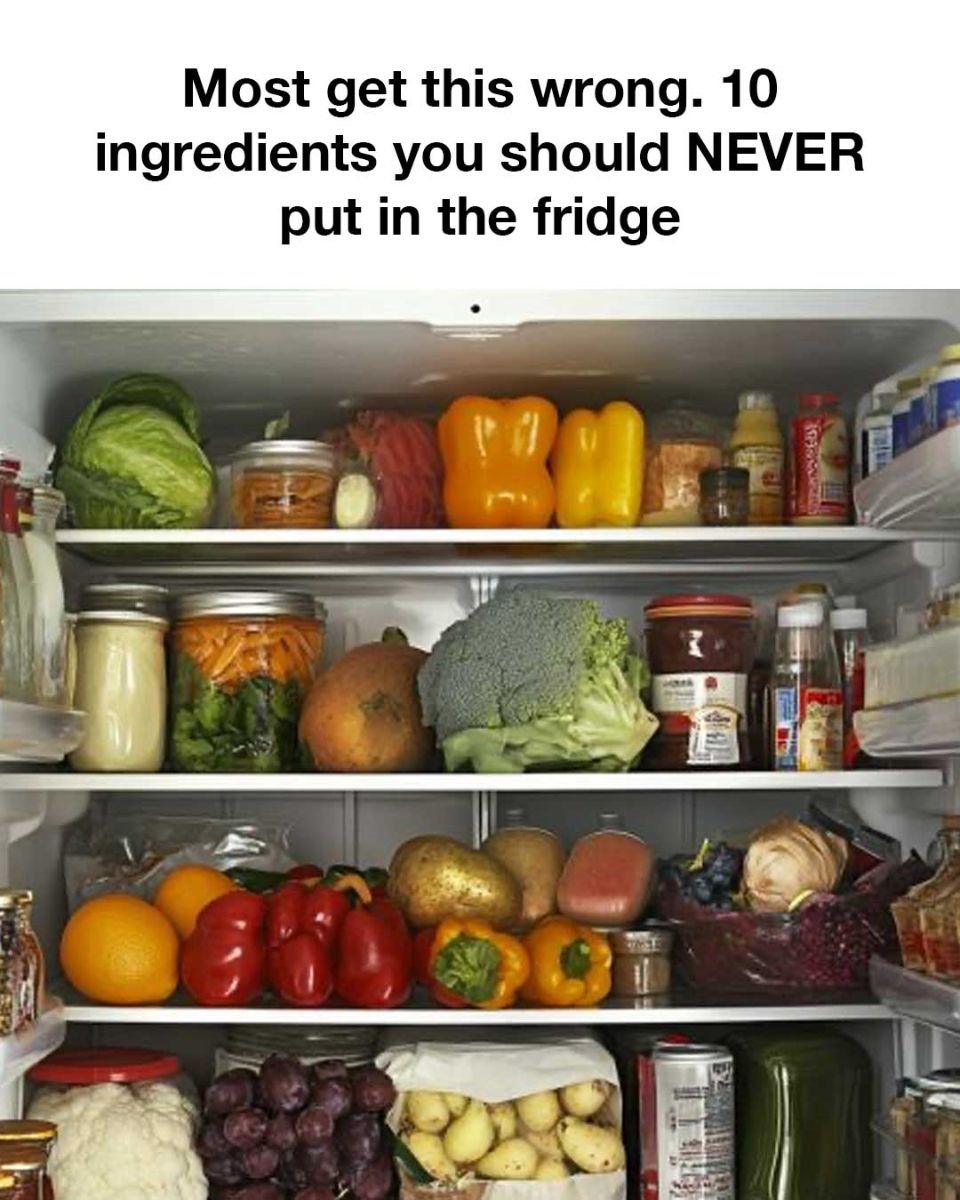ADVERTISEMENT
Many of us have a habit of placing almost every grocery item into the refrigerator the moment we get home, assuming that the cold environment will prolong the freshness of our food. However, this can sometimes do more harm than good. In reality, certain foods are better off stored at room temperature, where they can maintain their flavor, texture, and nutritional value much better. Storing foods incorrectly not only diminishes their quality but can often lead to them spoiling faster. In this article, we’ll explore ten ingredients that should never be refrigerated and provide you with proper storage tips to maintain their best condition.
Understanding Refrigeration and Food Quality
Refrigeration is a common method used to slow down the growth of bacteria and extend the shelf life of perishable items. However, not all foods react positively to cold temperatures. For instance, refrigeration can alter the molecular structure of certain ingredients, leading to changes in taste and texture. Understanding which foods thrive at room temperature or require minimal chilling can help minimize waste and enhance your culinary creations.
Advertisement
The Surprising Truth About Refrigeration
While the cool environment of a refrigerator is ideal for many perishable items like meats, dairy, and certain fruits and vegetables, it’s not a one-size-fits-all solution. Some ingredients lose their flavor, ripening process, and even nutritional value when stored in the fridge. This guide seeks to correct common misconceptions and offer clarity on why certain ingredients should be kept out of the cold.
Ingredient No. 1: Tomatoes
Tomatoes lose their flavor and become mealy when stored in the refrigerator. The cold temperature halts the ripening process essential for enhancing its taste. Instead, keep tomatoes at room temperature, away from direct sunlight, to retain their essence and encourage proper ripening.
Ingredient No. 2: Potatoes
Cold temperatures convert potato starch into sugar more quickly, affecting their texture and flavor. It can also cause them to darken when cooked. Store potatoes in a cool, dark, and dry area, like a pantry or cellar, where they can maintain their freshness and texture.
Ingredient No. 3: Onions
Onions tend to become soft and moldy in a humid refrigerator environment, causing them to spoil faster. They need to ‘breathe’ to stay fresh, so it’s best to store them in a dry, well-ventilated area, away from potatoes, to prevent faster spoilage.
Ingredient No. 4: Garlic
Refrigeration causes garlic to sprout, turning rubbery and losing its flavor. It’s best stored in a cool, dry, and dark place with good ventilation to keep it fresh and retain its robust flavor profile.
Ingredient No. 5: Bread
CONTINUE READING NEXT PAGE
continue on next page
ADVERTISEMENT


